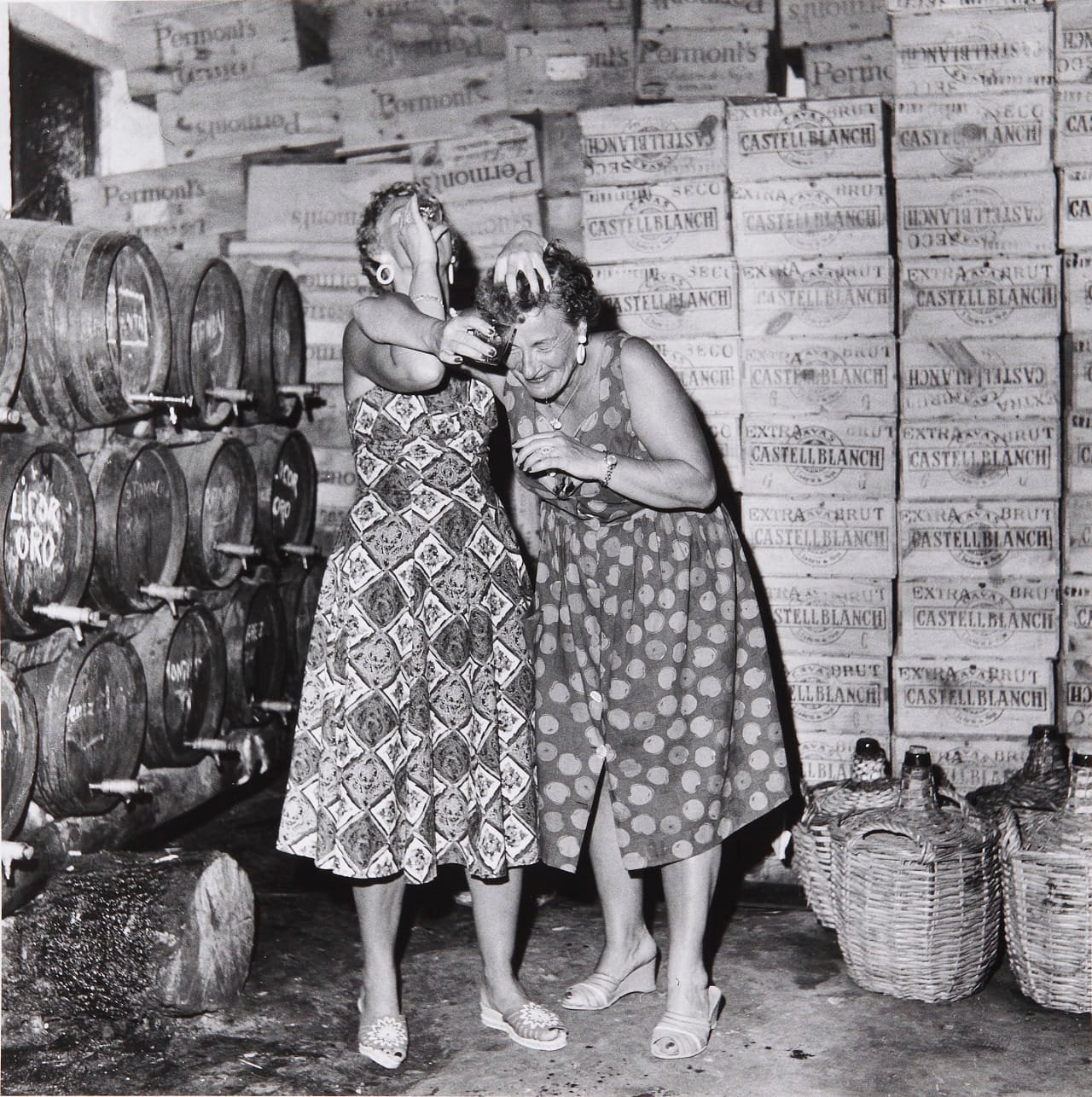 My top tipple of the last ten days, in case you were wondering, has been Buckley’s Original Mixture. AKA Buck Bucks. It features no actual medicine but does contain pine needle extract, Balsam sap, camphor and smelling salts. A double Makers Mark just about cuts the stuff. So I’ll be the gent in the corner reeking of coniferous forest as you read these notes this week which might not take all that long, given my residency on the sofa.
My top tipple of the last ten days, in case you were wondering, has been Buckley’s Original Mixture. AKA Buck Bucks. It features no actual medicine but does contain pine needle extract, Balsam sap, camphor and smelling salts. A double Makers Mark just about cuts the stuff. So I’ll be the gent in the corner reeking of coniferous forest as you read these notes this week which might not take all that long, given my residency on the sofa.
Good timing as it turns out as down south it’s Thanksgiving, the day that we up here in Canada call “Wrong Thanksgiving” but apparently it serves the social purpose of annually bringing steaming hot deep dishings of political misgivings and animosity directly to the family table just a few weeks after their fixed election date. Today, in honour of all that, we celebrate the 64th anniversary of the best TV ad for one of my favourite old school beers, Utica Club and it’s confirmation that they will need a lot to get through this. Viva Utica Club! Viva!!
What else is happening? Big news out of Britain is the continued demise of tradition. Is it the new old Labour effect? Who knows? But the fact is that Fuller’s is axing Lancer at the same time as Carlsberg Marston’s Brewing Co. is discontinuing every cask ale your great uncles ever loved. We get Bombardier here. Haven’t had one in over a decade. Mr. Beeson offers stark but reasonable advice:
Lets not mourn for brands that had already sunk into total irrelevance and put our time and energy into protecting cask brewers of the future…
Harsh? Hmm. My problem is that the loss of brands seems distinct from the loss of fluids. Does anyone bother that much anymore with recipes reformulations under and old label? Is it the beer or the branding we miss? And… and… has the combination of health concerns, price and disappearing brands left you in a quandry? Has it driven you to what The Times describes as “Zebra-striping“?
…drinking trends are moving away from the raucous, post-pandemic. Younger customers are demanding more low or non-alcoholic drinks. In 2016, 0.5 per cent of beer sales were alcohol-free varieties; this has risen to two per cent. But there is still room for significant growth, with the popularity of low or zero-alcohol beer in Britain well behind countries on the Continent… For those not willing to forgo alcohol altogether, “zebra striping” or “zebra-ing”, is gaining popularity — a trend for alternating between alcoholic and non-alcoholic beverages to mitigate the effects of a hangover the following day.
Make sense… except for, you know, water. Who hasn’t double fisted the pinto of water with the pint of ale? Is this really a new thing needing a new name? Or away to sell thick expensive soda pop called NA beers? Man, I am grumpy this week. I need to nicen up.
To that end, a special report from our special assignments correspondence Maureen Ogle who drew my attention to the breaking news that drinking a lot of alcohol over and over again over many day of one’s life is not at all good. Here’s a clip from the NYTs [Ed.: “roll the clip“]:
The National Alcohol Survey series, which collects data from the general population, defines high-intensity drinking as the consumption of at least 8 drinks in a row by anyone, male or female, over the previous 12 months. The survey’s latest analysis, which does not include data beyond the year 2020, also showed a decline in high-intensity drinking among young adults overall. But its frequency among men ages 30 and older and women ages 18 to 64 has increased, said Camillia Lui, a scientist at the Alcohol Research Group who crunched the data.
While the story also says that heavy drinking is not limited to the holiday season; nor is it mainly the pastime of college students we turned to Maureen for her thoughts on the matter:
Fucking morons. Is drinking a shit load of booze in two hours a dumb idea? Yes. Even dumber? Treating it as a shiny new danger.
[Ed.: “After the break, sports.“]
Next, Gary has been writing up a storm with an interesting focus recently on mid-1900s US Bock Beer. Here is part 1 and here is part 2 with a passing mention in this post about the regional brewery owner, the Atlantic Company. I like how this last post again confirms the fibbery in the old saw that the birth of US microbrewing was a response to a decades long wasteland of thin macro lagers. There was plenty of variety in US brewing into the 1970s and with personal or inherited memory of the micro pioneers even if, as Tremblay and Tremblay have shown, corporate mergers and leading brand advertising were starting to have great effect by that point.
David J. has news for you. He was the host of the 2024 British Guild of Beer Writers awards gala and general all around shindig held on Wednesday evening. He dressed up and everything. And I hear he had been studying the style of noted beer person Ricky Gervais. Expect social media to be replete with sorry headed tales of hungover beer writers throughout this Thursday after celebrating Blackout Wednesday in their own way. The big winner for the year was Ruvani de Silva who won “The Michael Jackson Award for Beer Writer of the Year” for 2024. Congratulations.
And Stan has his Hop Queries (edition 8.07 for you numerologists) out and he shared this tidbit about arguments in favour of beer as health fluid based on the presences of hops:
…one thing that does not change is that even hop-forward beers contain only four to five milligrams of xanthohumol. The amount of alcohol a drinker would need to consume to get the benefits would more than offset those benefits. But what about non-alcoholic beer? There is a catch. “The paradox regarding alcohol is a lot of the healthy ingredients in beer are more easily absorbed in the presence of alcohol,” said Zugravu Corina-Aurelia, a physician and researcher at the Carol Davila University of Medicine and Pharmacy in Bucharest.
Zing!!!* To ensure equal time, I was checking out the malting barley news and found this interesting nugget of news out of Manitoba:
Advances in malt barley genetics tend to move slower than they do with other commodities. Breeding companies have traditionally been cautious with new offerings and maltsters prefer older, proven genetics. One of the 2025-26 list’s recommended varieties, CDC Copeland, was registered before the turn of the millennium. Watts described the dilemma in 2022. “It’s been difficult to get uptake of new varieties over the years by the malting and brewing industry, partly because we’ve had very successful varieties like AC Metcalfe and CDC Copeland,” he said during a field day near Wawanesa. That same field day highlighted a new variety, AAC Prairie, which was also noted by the centre as a developing variety for the brewing market. Industry has noted less maltster reticence around newcomer varieties in recent years.
Please flood the comments with your first hand experinces of maltster reticence – which is my new favourite brewing related term.
In another sign of US craft’s contraction, according to Insights Weekly Digest, the Brewers Association has announced another round of cuts and a reorg with Pres. Bob Pease retiring, longtime senior employee Paul Gatza leaving and Dr.J. Nikol Jackson-Beckham moving away from her position as Director of Social Impact despite these being the times we live in.
John Clark posted some excellent photos of a pub, Manchester’s Locomotive from 1990. I was immediately struck by the minimal advertising tat. Looks like an NHL game from before the sideboards got plastered with offers from banks and doughnut makers.
Pellicle‘s piece this week was on cider and another solution to the question of why people are drinking less of the stuff people need to sell:
“Bottles are great at getting fine cider into the hands of cider and wine drinkers,” Little Pomona’s cidermaker James Forbes tells me. “But in the world of beer, draught dispense is king, and we wanted to have something to offer tap rooms and craft beer bars that would suit them better.” Keg-conditioned cider is the most compelling attempt to date to bring the two faces of cider into one cohesive expression. It offers the same level of care, quality and respect for its ingredient as a bottle that might grace a home dinner table, but served in a format that nestles comfortably into cider’s more familiar British surroundings of the pub.
I am not sure I would ever say “thank you, thank you, Baby Jesus… there’s keg cider here” to myself but at the same time I probably wouldn’t ask if the cider was keg or cask if it was tasty. If the technology allows for a more stable yet little compromised drink, why not? That being said, it was warming to see even Matty C himself, especially pre-hungover, chaffe at the word “aspirational” used as it was.
Mr. Trump has threated all and sundry with tariffs to solve the problem of inflation in the US economy. Helpfully, some clever people have indicated how this will cause inflation in the US economy with a focus on Mexico’s Constellation brands:
The stock STZ dropped 3.3% to close Tuesday at $233.60. It inched upward in premarket trades Wednesday. “We estimate Constellation would need a 12% beer price increase to fully offset a 25% increase in beer [costs of goods sold], i.e. keep gross profit dollars flat,” Kirk wrote in a note to clients. He pointed out, however, that three factor merited consideration. First, the last time Trump proposed tariffs on Mexico in 2019, they never actually happened…
We may not need to review the other factors. Still, it’s worth noting that (i) not all imports in beer are finished products and (ii) a lot of US craft beer is made up on a lot of Canadian malt barley. Count your pennies.
Proof that both craft brewing and Christianity are large raft concepts, Forbes has an article this week on a brewery out of Illinois that brands its beers based on events and individuals in the Catholic faith:
The Cristeros, they learned, were a group of Mexicans who stood up against government tyranny against the Catholic Church in the 1920s. “The government was really suppressing the Catholic Church, shutting down churches, executing priests and exiling bishops,” Trevor says. “The people organically rose up, and they brought the government to a standstill”… and their third release is Dies Irae, which means “day of wrath” in Latin, and it is an imperial stout, which references the final judgment. “Not to be morbid, but that beer gets to what is the purpose of life”…
Sounds cheery. Finally and finishing perhaps where we began, as we contemplate the some thoughts from Frederick Douglass from 1894 contemplating another reactionary shift in political times, as quoted by Jamelle Bouie in the NYT last weekend:
Strange things have happened of late and are still happening. Some of these tend to dim the luster of the American name and chill the hopes once entertained for the cause of American liberty. He is a wiser man than I am who can tell how low the moral sentiment of this republic may yet fall. When the moral sense of a nation begins to decline and the wheel of progress to roll backward, there is no telling how low the one will fall or where the other may stop.
The pendelum is swinging. I could say just don’t let it hit you but perhaps it would be good if you could give it a good hard nudge as it passes by. Because it would be another 70 years until the US Civil Rights Act and there’s no need to wait that long this time.**
Well, that’s it for now. Looming issues about. Is that the theme? If you are looking for alternatives, please check out Boak and Bailey every Saturday and Stan going strong again each and every Monday. Then listen to Lew’s podcast and get your emailed issue of Episodes of my Pub Life by David Jesudason on the (never ever) odd Fridays. And Phil Mellows is at the BritishBeerBreaks. Once a month, Will Hawkes issues his London Beer City newsletter and do sign up for Katie’s wonderful newsletter, The Gulp, too. Ben’s Beer and Badword is out there with the all the sweary Mary! And check out the Atlantic Canada Beer Blog‘s weekly roundup. There is new reading at The Glass which is going back to being a blog. Any more? Check out the Beer Ladies Podcast. That’s quite good and they are revving up for a new year. And the BOAS podcast for the bro-ly. And the long standing Beervana podcast …except they have now stood down. Plus We Are Beer People. The Boys Are From Märzen podcast appears suspended as does BeerEdge, too. But not Ontario’s own A Quick Beer. There is more from the DaftAboutCraft podcast, too. All About Beer has podcasts and there’s also The Perfect Pour. Plus follow the venerable Full Pint podcast. And the Craft Beer Channel on Youtube. The Moon Under Water is gone which is not surprising as the ask was $10 a month. Pete Brown’s one cost a fifth of that but only had the one post. Such is life.
*Wasn’t xanthohumol an Olivia Newton John song?
**Tariffs set at 25%? Lordy. Here comes the 61 cent Canadian dollar. But… we’ve been there before. Did you know much of US craft beer uses Canadian malt? I mentioned that already? Fine. Whatever.

 Fine. Almost festive. Almost. But this is when the slide starts to feel greased. Five weeks to Boxing Day. Whoooo! The Boxing Day carols shall ring out loud around the Boxing Day leftover casserole once again!! The most wonderful time of the year
Fine. Almost festive. Almost. But this is when the slide starts to feel greased. Five weeks to Boxing Day. Whoooo! The Boxing Day carols shall ring out loud around the Boxing Day leftover casserole once again!! The most wonderful time of the year
